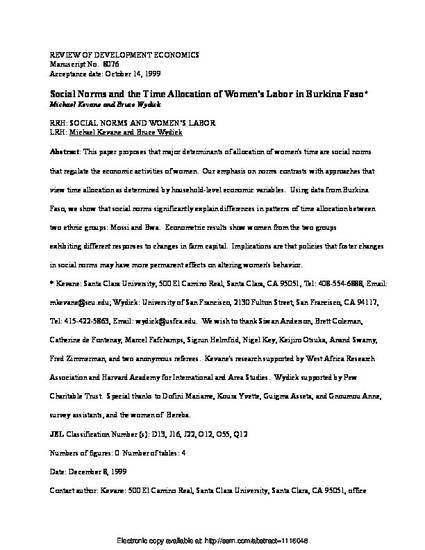
Article
Social Norms and the Time Allocation of Women's Labor in Burkina Faso
Economics
Document Type
Article
Publication Date
2-1-2001
Publisher
Wiley
Disciplines
Abstract
This paper proposes that major determinants of allocation of women's time are social norms that regulate the economic activities of women. Our emphasis on norms contrasts with approaches that view time allocation as determined by household-level economic variables. Using data from Burkina Faso, we show that social norms significantly explain differences in patterns of time allocation between two ethnic groups: Mossi and Bwa. Econometric results show women from the two groups exhibiting different responses to changes in farm capital. Implications are that policies that foster changes in social norms may have more permanent effects on altering women's behavior.
Citation Information
Kevane, M., & Wydick, B. (2001). Social Norms and the Time Allocation of Women’s Labor in Burkina Faso. Review of Development Economics, 5(1), 119–129.

This is the peer reviewed version of the following article: Kevane, M., & Wydick, B. (2001). Social Norms and the Time Allocation of Women’s Labor in Burkina Faso. Review of Development Economics, 5(1), 119–129., which has been published in final form at https://doi.org/10.1111/1467-9361.00111. This article may be used for non-commercial purposes in accordance With Wiley Terms and Conditions for self-archiving.